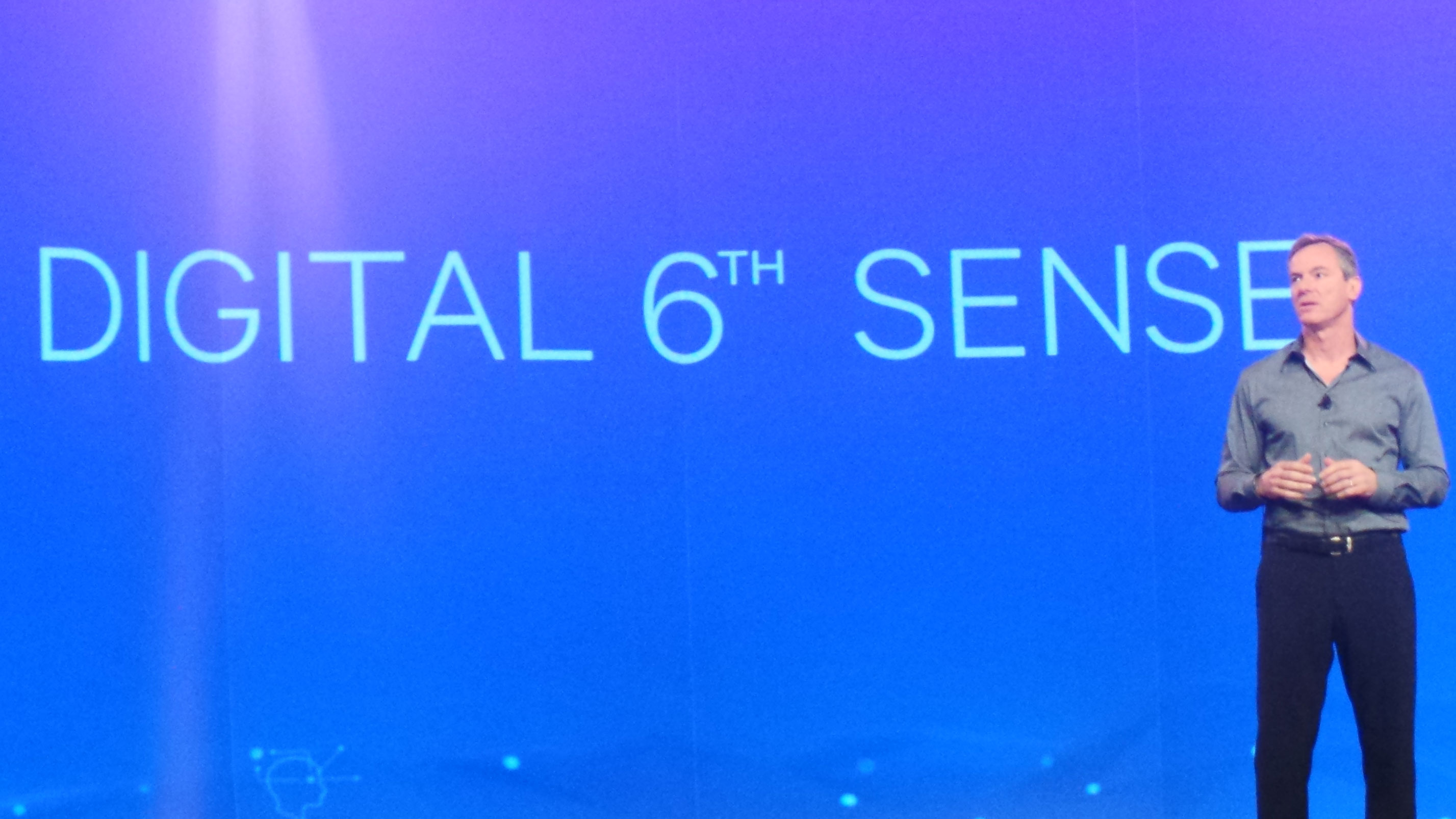Qualcomm wants to give you a 'digital sixth sense'
Because five just isn't enough

Qualcomm loves mobile. And let's be honest, who doesn't? But now it's looking to add to your touch, sight, smell, taste and hearing with something it's calling the "digital sixth sense".
While that sounds pretty brazen there is a deeper meaning behind the showy name, with Qualcomm aiming to connect all our devices and have them interact with others located in your current environment.
Predictions suggest that there will be 25 billion connected devices by 2020 and over half of those won't be a mobile phone, with things such as TVs, cars and wearable technology so Qualcomm is looking at ways to make all these work in unison.
It's not just the simple link of devices talking to each other either. Qualcomm is working on technology to allow your mobile phone to react to your preferences and your current location by providing useful, relevant and timely information.
Not so natural senses
There are a number of offerings Qualcomm has developed to push towards this extension of our natural senses, keeping the smartphone at the centre of everything we do, but requiring us to use it less.
First up there's Gimbal, a context aware system which can communicate with Bluetooth beacons and push things such as notifications and offers to your smartphone - we've already tried out the system at the conference.
Then there's the AllJoyn and AllPlay services, the former providing a secure framework for joining various devices together and the latter building on top of that with a music streaming service allowing you to play music from your smartphone or tablet to enabled speakers.
Sign up for breaking news, reviews, opinion, top tech deals, and more.
It's a similar sort of deal to Sonos, but Qualcomm is offering the SDK for AllPlay to developers, allowing them to build the functionality directly into their applications.
Lastly is Qualcomm Vuforia, an augmented reality engine which allows you to interact with objects which aren't connected - such as magazines. Nothing really new here then.

What is new is something Qualcomm is calling Smart Terrain which uses Vuforia and it can turn every day objects into a virtual world which can then be used as a platform for game play.
The example we were shown during the conference was a coffee tablet being turned into a game world, with a unique 3D mapper slapped on the back of a Sony Xperia Tablet Z creating a mesh of the surface and the objects on it and then building the world on top.
It was certainly impressive, but we're not completely sold on the concept of people holding their smartphone or tablet up to their coffee table just to play a game, when sitting back on the sofa is a far more appealing option.

TechRadar's former Global Managing Editor, John has been a technology journalist for more than a decade, and over the years has built up a vast knowledge of the tech industry. He’s interviewed CEOs from some of the world’s biggest tech firms, visited their HQs, and appeared on live TV and radio, including Sky News, BBC News, BBC World News, Al Jazeera, LBC, and BBC Radio 4.